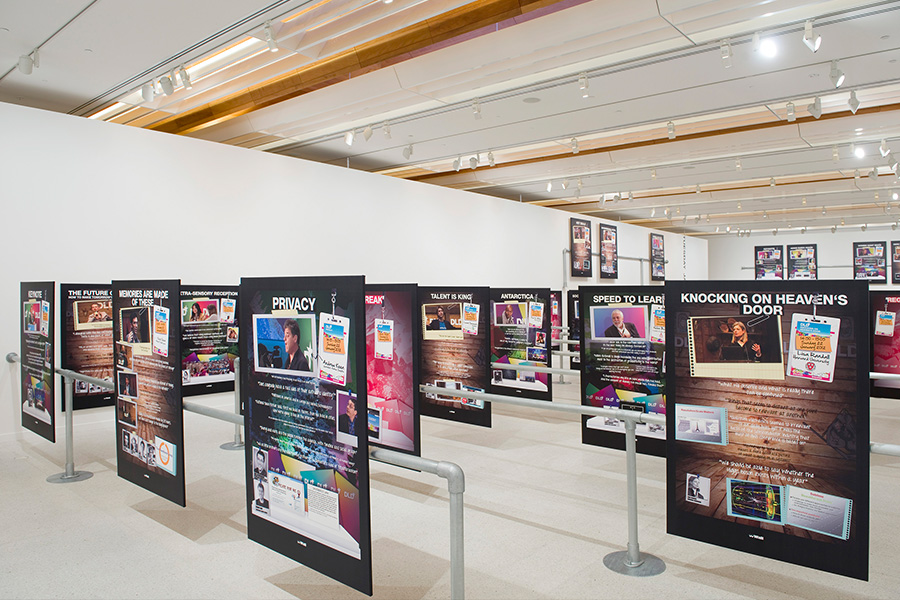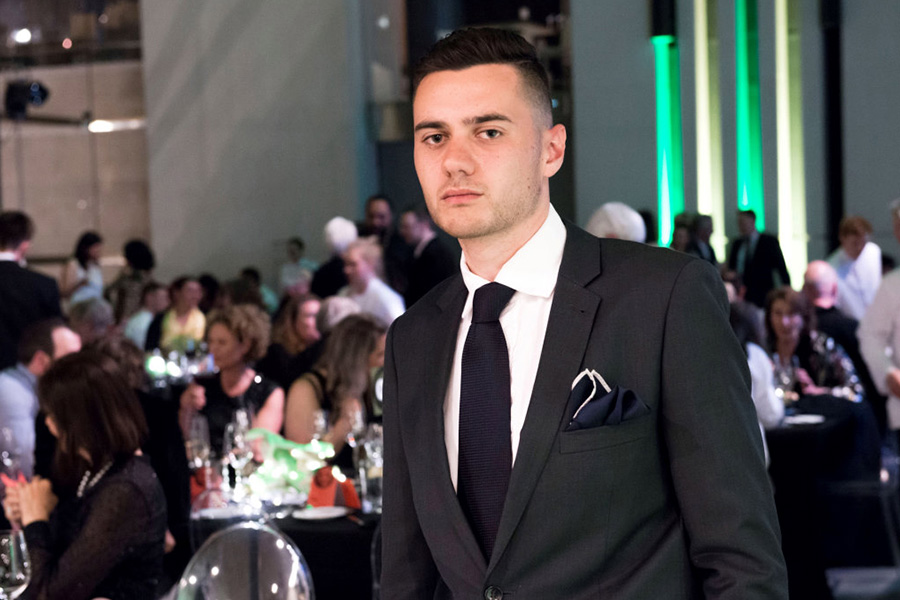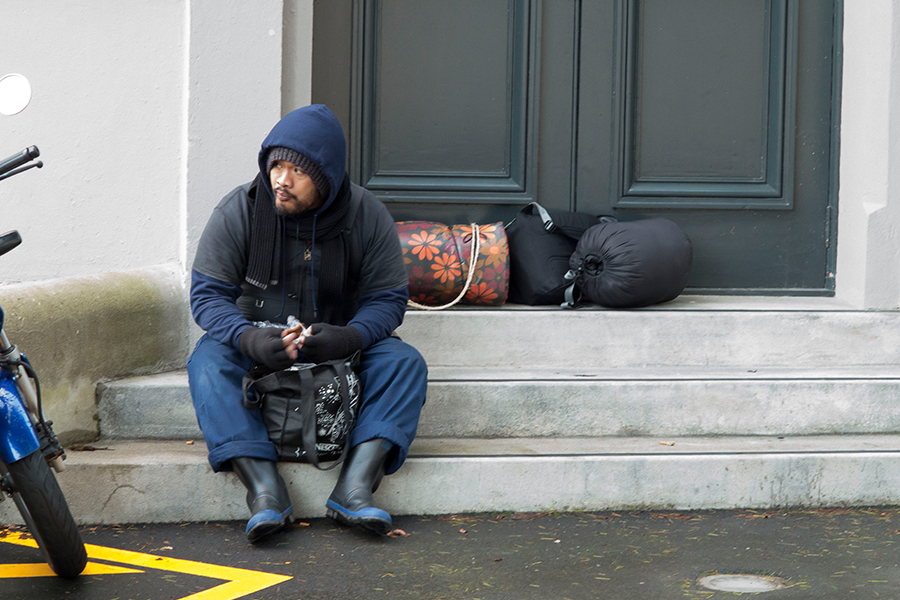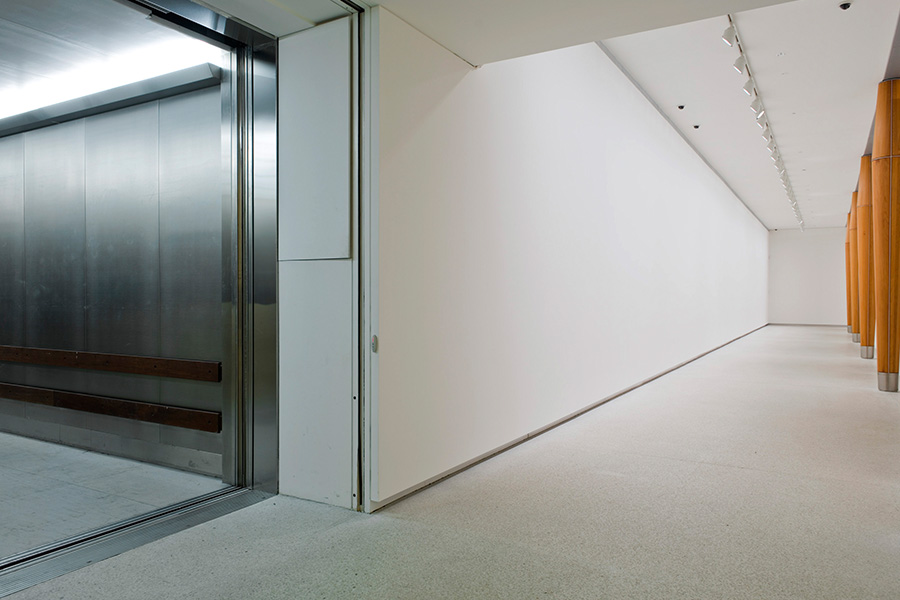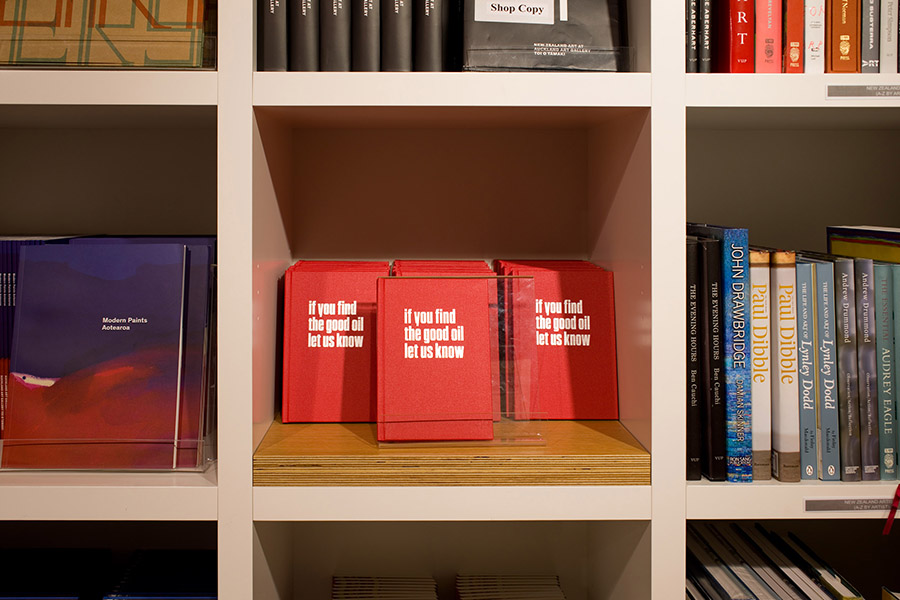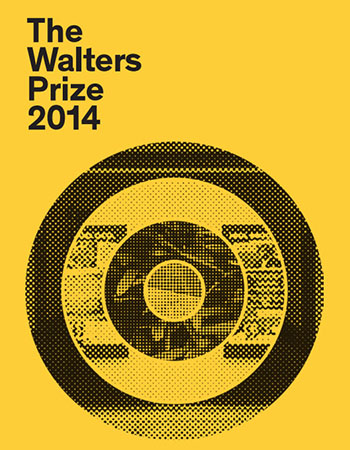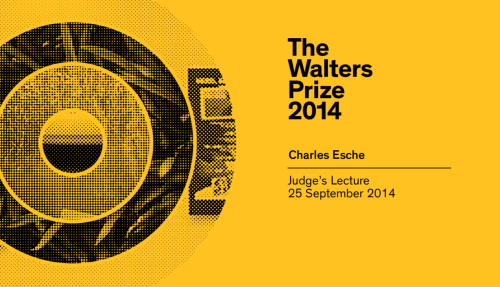—
exhibition Details
Winner
Finalists
International judge
Judge's statement
Jury
Jury's statement
Coordinating curator
Sponsors
Publication
Winner
The Walters Prize 2014 was awarded to Luke Willis Thompson for inthisholeonthisislandwhereiam. The winner was announced by international judge Charles Esche at a gala dinner on Friday 26 September 2014.
Finalists
- All You Need Is Data – The DLD 2012 Conference REDUX, by Simon Denny: at Kunstverein Munich 19 January – 10 March 2013 and at Petzel Gallery, New York, 20 June – 27 July 2013
- If you find the good oil let us know, by Maddie Leach: at Govett-Brewster Art Gallery and off-site 25 June 2012 – 14 February 2014. Read online documentation about the exhibition
- inthisholeonthisislandwhereiam, by Luke Willis Thompson: at Hopkinson Mossman (formerly Hopkinson Cundy) and off-site 14–31 March 2012
- Mo'ui tukuhausia, by Kalisolaite 'Uhila: from the exhibition 'What do you mean, we?' at Te Tuhi Center for the Arts, 3 March – 6 May 2012.
International judge
The international judge for the Walters Prize 2014 is Charles Esche, curator, writer and the director of Van Abbemuseum in Eindhoven, Netherlands. Esche heads the curatorship of significant international exhibitions, such as the 2014 São Paulo Biennale, the Riwaq Biennial (Palestine, 2009 and 2007), the 9th International Istanbul Biennial 2005 and 4th Gwangju Biennial (South Korea, 2002). He is also co-founder and co-editor of leading art publication, Afterall.
Judge's statement
Luke Willis Thompson and his quite extraordinary intrusion of art into daily life cuts through the protocols of the exhibition system like a knife. The journey begins in the first act of accessing the museum's back stage and suspends itself for the whole length of the journey there and back.
Anticipation, uncertainty, uneasiness and privilege all play their emotional part in charging a sense of personal displacement. Questions multiply in the process. Is this being done for me? Do I deserve it, or even want it? How do I need to react? And these questions linger because of the way the work is constructed, its formal qualities to speak in art critical terms, require a commitment in time and thought. Once you agree to take part, you cannot but engage and be implicated into its aesthetics.
Much more could and will be said about this work and, I am confident, also about the artist in the future. It is enough to say that this is, for me, an exceptional artistic experience, one that will stay with me long after I leave Auckland and one to which I am delighted to be able to award the 2014 Walters Prize.
Jury
The 2014 jury comprised:
- Christina Barton - Director of the Adam Art Gallery at Victoria University of Wellington
- Anna-Marie White - Curator at The Suter Art Gallery Te Aratoi o Whakatū, Nelson
- Peter Robinson - Artist and Associate Professor at Elam School of Fine Arts, University of Auckland
- Caterina Riva - Curator and the Director of Artspace NZ, Auckland
Jury's statement
In determining the most outstanding contribution to New Zealand art since the last Walters Prize, the jurors have selected four artists who have undertaken memorable projects that prove art's traction as a means to engage the social, economic, cultural, technological, and environmental realities we collectively face. Each project demonstrates a conceptual grasp of the legacies of art's recent history and a commitment to modes of presentation that challenge expectations and shift attention away from objects to processes and situations. They are all willing to test the boundaries of self and society and to question just where art begins and ends. We believe these artists' practices raise issues that are relevant to our lives, and that they are vitally contributing to and advancing discussions about the nature of art at this time.
In the two years since Simon Denny was a finalist in the last Walters Prize, he has undertaken a string of substantial exhibitions that prove his original contribution to what has come to be known as 'post-internet aesthetics'. Denny's All You Need Is Data - The DLD 2012 Conference REDUX, which was presented in Munich and New York in 2013, is a clever visualisation and subtle critique of the hyped-up promises offered by the tech gurus of our digital future. Re-using the aesthetics of the Digital Life Design (DLD) media conference, Denny creates a walk-through sculptural installation that proves just how 'thin' a sound bite actually is.
Maddie Leach's intensive but dispersed project, If you find the good oil, let us know, commissioned by the Govett-Brewster Art Gallery as its last artist-residency before the gallery closed for major renovations, has slowly unravelled over the full two years of the 2014 Walters Prize period. Her work follows an idiosyncratic thread that started with a substance Leach thought might be real whale oil and ended with the relocation of a cube of cement made from recycled mineral oil to the seabed several kilometres off the coast. Through this lengthy peregrination Leach managed to draw in scientists, cement workers, sailors, oil-industry executives, the editor of the local paper, staff of the gallery, a dispersed group of writers, and the people of New Plymouth. This is typical of the artist's practice, which arises out of a particular circumstance and is shaped by a lengthy process of embedded enquiry and social interaction.
Luke Willis Thompson's bold project for Hopkinson Cundy (now Hopkinson Mossman) deeply shook the set parameters of how art is traditionally experienced and challenged any passive notion of spectatorship. To find the artwork, visitors had to take a taxi stationed at the empty gallery and, with a palpable sense of unease, set off to an unknown destination, with only the tentative conversation with the driver to break the tense sense of expectation. Arriving at a suburban house, visitors were invited to enter and wander around but not to enter into the bedrooms. With no people inside, yet signs of habitation everywhere, visitors only gradually came to realize - through closer inspection of school projects, books, and photographs - this was the artist's family home. In such an audacious situation, the boundaries of exclusion and inclusion, intimacy and voyeurism were completely blurred; the project demanded we consider anew concepts of intentionality, the location of art and how to ascribe meaning or determine value.
In March 2012, Kalisolaite 'Uhila lived homeless for a two-week period in the vicinity of Te Tuhi Centre for the Arts in Pakuranga. The artist intended this as a consciousness-raising exercise drawing attention to the state of homelessness. He was successful in his ambition and the artwork was the subject of intense scrutiny by locals, police, and national news media. Undertaken at the start of the Walters Prize period, this subject has only grown in importance, as homelessness, amongst Polynesian men in particular, has emerged as a pressing issue in Auckland and other urban centres. As a Tongan-born artist, 'Uhila is broadly concerned with the idealisation of Aotearoa New Zealand as a land of opportunity compared with a reality of minimum-wage factory and seasonal labour. His body of endurance performance artworks undermines these utopian values and holds New Zealand to account for attracting Pacific migrants to support a low-wage, manual-labour strata of the economy. His work speaks vividly to the vulnerable conditions of life for a social underclass in this country.
Coordinating curator
The coordinating curator for the Walters Prize 2014 was Stephen Cleland.
Sponsors
Founding benefactors and Principal donors:
Erika and Robin Congreve and Dame Jenny Gibbs
Major donor:
Dayle Mace
Founding sponsor:
Saatchi & Saatchi
Major sponsor:
Elevation Capital
Publication
Read the Walters Prize 2014 publication free online via ISSUU.
- Date
- —
- Curated by
- Stephen Cleland
- Location
- Level 2
- Cost
- Free entry
